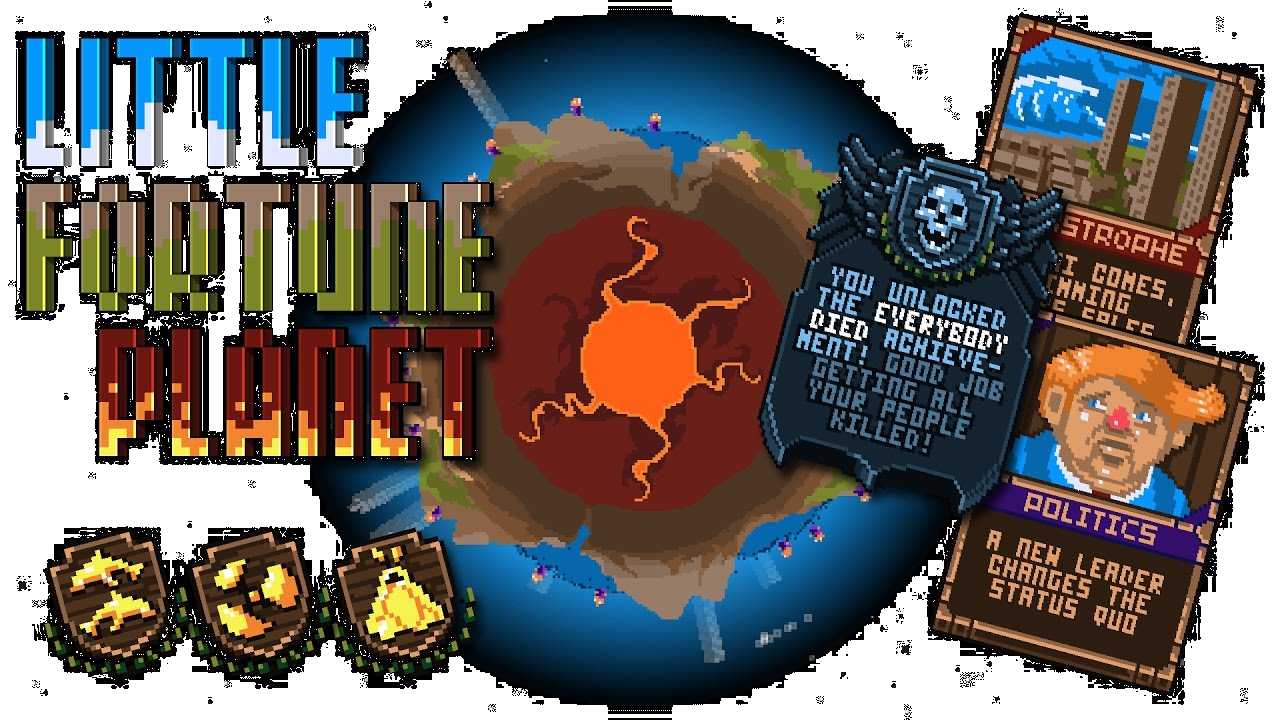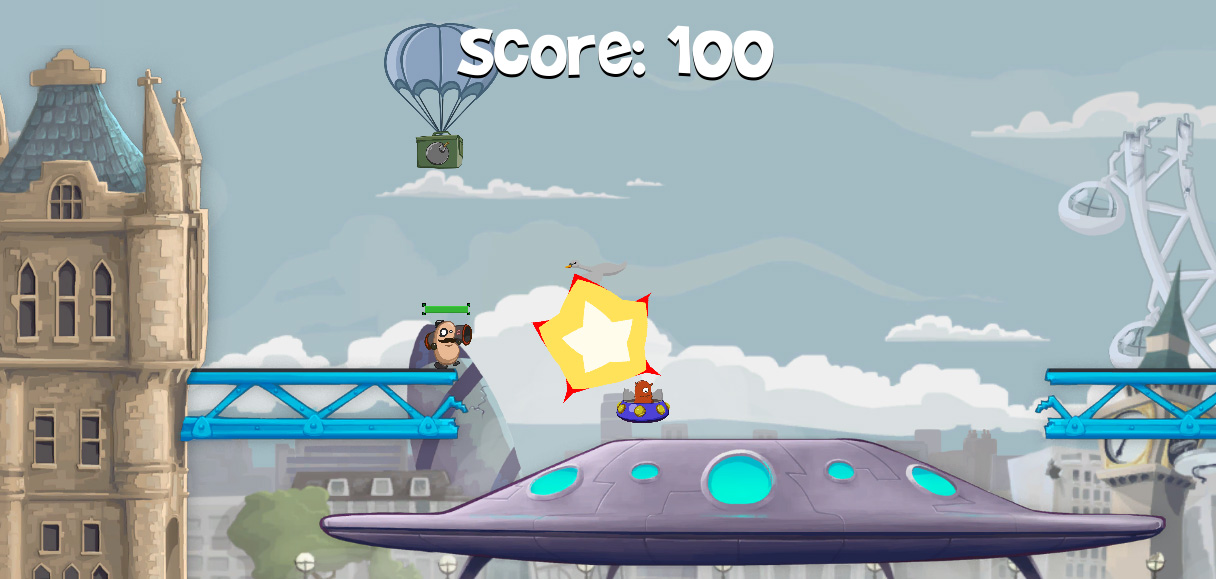Component Architecture II

Game Architectures summary
Object-oriented approach
Object-oriented approach
- simple
- fast prototyping from scratch
- low overhead
- easy to debug
- hard to maintain
- hard to scale
- not flexible
- game objects may have features they don't need
Component-oriented approach
- attributes are DATA, components are CODE communicating by means of messages
- entity is just an empty shell
Component-oriented approach
- scalable
- data-oriented
- components are easy to reuse
- easy to make new object types
- polymorphic operations for components
- dynamic typing - everything is assembled at runtime
- all dependencies have to be wired together
- code must be written in an utterly generic way
- refactoring may become very difficult
- harder to debug
Hybrid approach
- tries to get the best of both world
- necessary for more complex games
- higher coupling
Communication
Communication practices
By modifying the container object's state
- e.g.: shared state machine
- indirect communication
- difficult to debug
By direct calls
- OP way
- fast, but increases coupling
- e.g.: group of components that are always bound together
By messaging systems
- events and commands
- each component can declare interest in relevant messages
- slower than the direct call, but that cost is negligible in all but performance-critical code
- difficult to debug, messages can fall into an infinite loop
- can be implemented via polymorphism, arrow functions,...
- e.g.: game-over event
Messaging system
- Components should be notified of any state change that are relevant to them
- Can be used for returning values (danger of feedback deadlock )
- Blind event forwarding - an object can forward an event to another object
- One handler - OnMessage() method, implemented in each component
- Processing can be instant or delayed
- Event Queue - pattern for batch message processing, can post events with a delay
Example: Rotation component
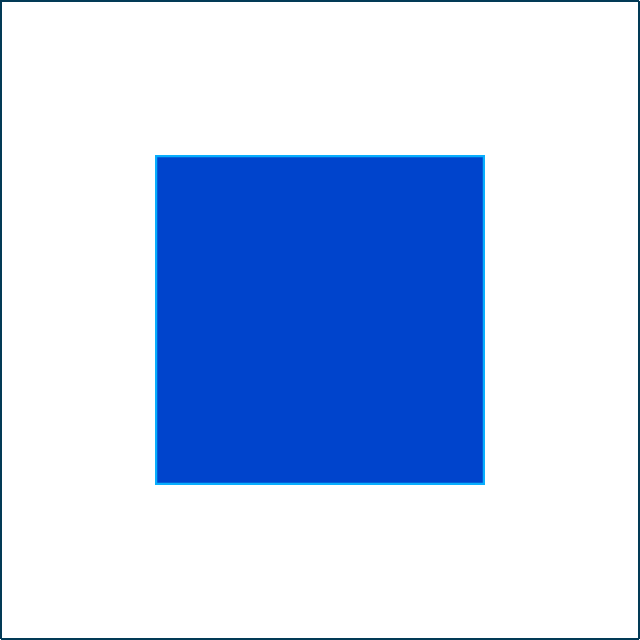
class RotationAnim extends Component {
onInit() {
this.subscribe("STOP_ROTATION");
}
onMessage(msg: Message) {
if (msg.action == "STOP_ROTATION") {
this.finish();
}
}
onUpdate(delta, absolute) {
this.owner.rotation += delta;
}
}
// alternative way by using some tricks
new GenericsComponent("RotationAnim")
.doOnMessage("STOP_ROTATION", (cmp, msg) => cmp.finish())
.doOnUpdate((cmp, delta, absolute) => cmp.owner.rotation += delta);
Message types
Unicast
- a component sends a message to another component
- in most cases this can be handled by a direct call
- example: kill an object
Multicast
- a) component sends a message to specific subscribers
- b) component sends a message to all objects that meet specific criteria
- example: notify all nearby units that an enemy has entered the area
- example: a unit was destroyed -> notify everyone interested
Broadcast
- rarely used (observer pattern doesn't stick to it)
- usually for System-Entities communication
- example: level completed, game over, player died
Example: Messages
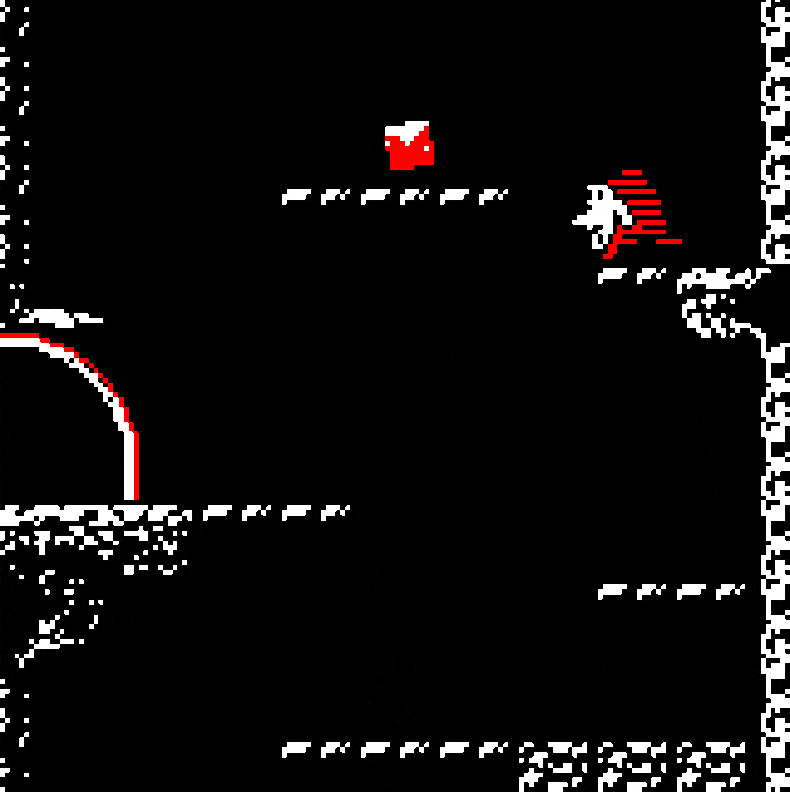
Downwell
Engine messages
- game object state changed
- game object added
- game object removed
- game paused
- animation ended
- collision occurred
Game messages
- gem collected
- enemy spawned
- player hit
- enemy died
- level completed
Example: Atomic GE Event passing
void Object::SendEvent(StringHash eventType, VariantMap& eventData) {
SharedPtr<EventReceiverGroup> group(context->GetEventReceivers(this, eventType));
if (group) {
group->BeginSendEvent();
for (unsigned i = 0; i < group->receivers_.Size(); ++i) {
Object* receiver = group->receivers_[i];
// Holes may exist if receivers removed during send
if (!receiver) continue;
receiver->OnEvent(this, eventType, eventData);
// If self has been destroyed as a result of event handling, exit
if (self.Expired()) {
group->EndSendEvent();
context->EndSendEvent();
return;
}
processed.Insert(receiver);
}
group->EndSendEvent();
}
}
Example: Godot engine signals
# No arguments.
signal your_signal_name
# With arguments.
signal your_signal_name_with_args(a, b)
func _at_some_func():
instance.connect("your_signal_name", self, "_callback_no_args")
instance.connect("your_signal_name_with_args", self, "_callback_args")
func _at_some_func():
emit_signal("your_signal_name")
emit_signal("your_signal_name_with_args", 55, 128)
some_instance.emit_signal("some_signal")
Example: Unity Messages
public interface ICustomMessageTarget : IEventSystemHandler
{
// functions that can be called via the messaging system
void Message1();
void Message2();
}
public class CustomMessageTarget : MonoBehaviour, ICustomMessageTarget
{
public void Message1()
{
// handle message
}
public void Message2()
{
// handle message
}
}
// sending message
ExecuteEvents.Execute<ICustomMessageTarget>(target, null, (x,y) => x.Message1());
Example: Unreal Message Bus
- Facilitates communication between application parts via Message Passing
- Messages are classified into commands and events
- All messages are wrapped into IMessageContext, containing additional information
Messaging System Summary
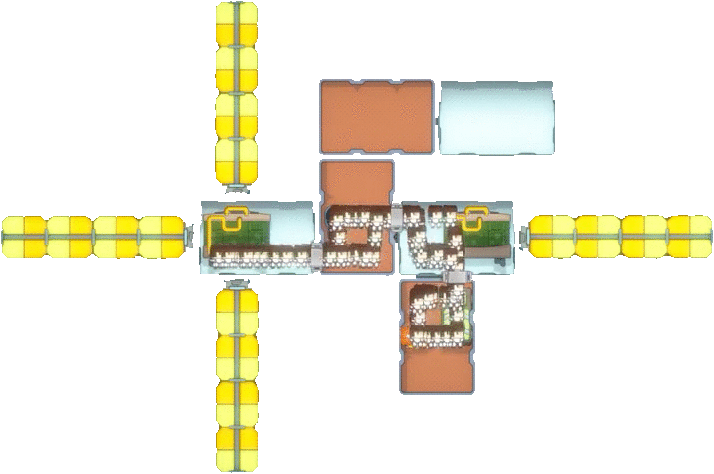
- Messages are not intended for regular processing
- If there is something that should run every frame, use polling or direct call
- Avoid expensive processing in OnMessage handler
- Separate message from different layers (e.g. collision events from game events)
- The issue is to decide who is responsible for message handling - a unit, a group or a system?
- Difficult to revise the messaging architecture once it has been established
Component-oriented game engines
Component-oriented game engines
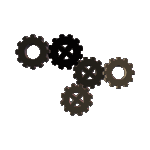
Artemis framework
- https://github.com/junkdog/artemis-odb
- Java, ported to C#, ECS implementation in its essential nature
Atomic Game Engine
- https://github.com/AtomicGameEngine/AtomicGameEngine
- Forsaken, yet it is one of the best documented light-weight engines
CraftyJS
- http://craftyjs.com/
- compact JavaScript engine
Unity
Unreal Engine
Godot Engine
CraftyJS
- Open-Source JavaScript ECS library
- Game objects (entities) hold their state
- Components encapsulate behaviors
- Communication via event callbacks
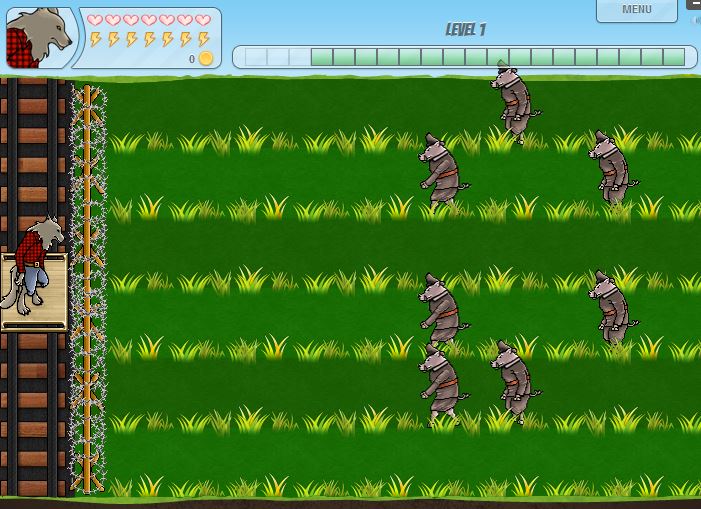
CraftyJS constructs
// scene initialization
Crafty.e('2D, Canvas, Color, Twoway, Gravity')
.attr({x: 0, y: 0, w: 50, h: 50})
.color('#F00')
.twoway(200)
.gravity('Floor');
// event binding
square.bind("ChangeColor", function(eventData){
this.color(eventData.color);
})
// event trigger
square.trigger("ChangeColor", {color:"blue"});
// custom component
Crafty.c("Square", {
init: function() {
this.addComponent("2D, Canvas, Color");
this.w = 30;
this.h = 30;
},
remove: function() { Crafty.log('Square was removed!'); }
})
Example: Cron
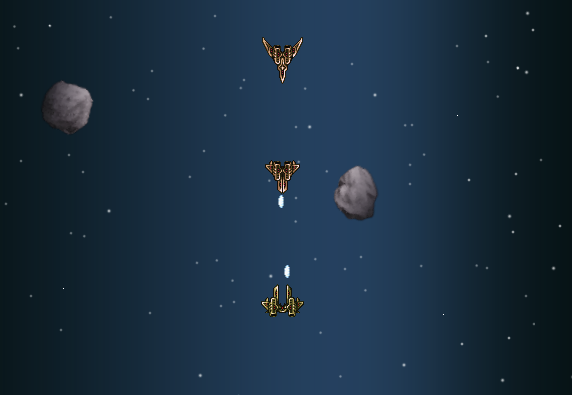
Crafty.c("PowerUp",{
init:function() {
this.requires("2D,Canvas,Collision")
.onHit("PlayerBullet",function() { // destroy powerup on hit
this.destroy();
})
.onHit("Player",function(ent) { // apply the effect when player is nearby
ent[0].obj.trigger(this.effect,this.value);
this.destroy();
})
// move the powerUp down
.bind("EnterFrame",function(){
this.y+=2;
});
}
});
Crafty.c("Heal",{
effect:"RestoreHP", value:1,
init:function(){
this.requires("PowerUp,heal");
}
});
Artemis-ODB
- Java-based ECS framework
- Android, iOS, HTML5
- Systems encapsulate logic, components encapsulate data
- Messaging via reflection or direct call
Artemis-ODB elements
- World - container for entities, systems and components
WorldConfiguration config = new WorldConfigurationBuilder()
.dependsOn(MyPlugin.class)
.with(
new MySystemA(),
new MySystemB(),
new MySystemC(),
).build();
World world = new World(config);
- Entity - container of related components
- Component - pure data class
public class Health extends Component {
public int health;
public int damage;
}
Artemis-ODB elements
- Aspect - used for entity systems to tell them which components they should be interested to
- Aspect.All(types) - system processes entities which have all components of type Aspect
- Aspect.One(types) - system processes entities which have at least one of the components of type Aspect
- Aspect.Exclude(types) - system won't process entities which have at least one of the components of type Aspect
// system for three special towers
public RangeTowerSystem() : base(Aspect.All(typeof(Tower)).GetOne(typeof(Ballista),
typeof(Cannon),typeof(MageTower)))
{
....
}
Artemis-ODB elements
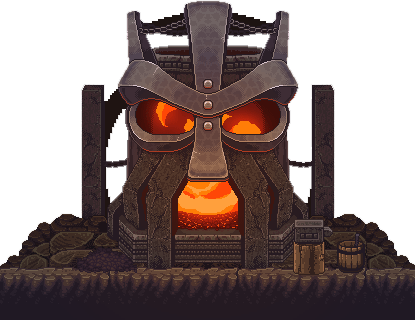
- System - encapsulates game logic, operates on a group of entities
public class MovementSystem extends EntityProcessingSystem {
public MovementSystem() { super(Aspect.all(Position.class, Velocity.class)); }
}
- Archetype - reusable blueprint for new entities
// new archetype
Archetype dragonArchetype =
new ArchetypeBuilder()
.add(Flaming.class).add(Health.class).build(world);
// extended archetype
Archetype undeadDragon =
new ArchetypeBuilder(dragonArchetype)
.add(FrozenFlame.class).remove(Flaming.class).build(world);
Artemis-ODB elements
- Transmuter - transforms entity component compositions
// create new transmuter
this.transmuter = new EntityTransmuterFactory(world)
.add(FrozenFlame.class).remove(Flaming.class).build();
// apply transformation to entity
this.transmuter.transmute(entity);
- Plugin - provides extensions as a drop-in plugin
public class MyPlugin implements ArtemisPlugin {
public void setup(WorldConfigurationBuilder b) {
// hook managers or systems.
b.dependsOn(TagManager.class, GroupManager.class);
// Optionally Specify loading order.
b.with(WorldConfigurationBuilder.Priority.HIGH, new LoadFirstSystem());
// And your custom features
b.register(new MyFieldResolver());
}
}
Example: Feed the Space
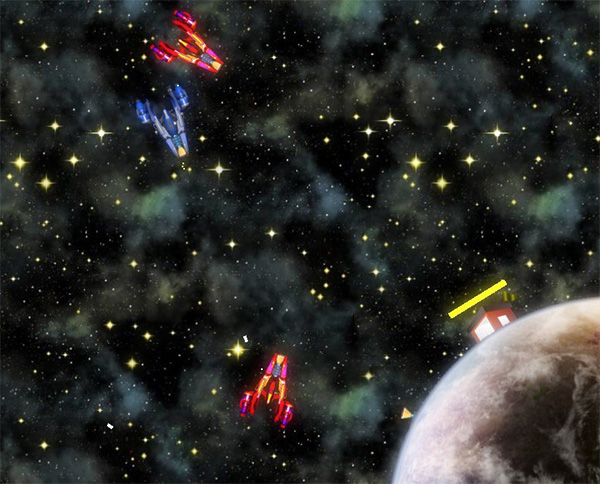
private static void startBlackHoleGravity(Entity blackHoleE) {
SpasholeApp.ARTEMIS_ENGINE.getSystem(Box2dWorldSystem.class).setEnabled(false);
SpasholeApp.ARTEMIS_ENGINE.getSystem(Box2dBodySystem.class).setEnabled(false);
BlackHoleGravitySystem.setBlackHole(blackHoleE);
// add BlackHoleGravitySystem.components
IntBag actors = Aspects.ACTORS.getEntities();
for (int i = 0; i < actors.size(); i++) {
int actorId = actors.get(i);
if (actorId != blackHoleE.getId()) {
BlackHoleGravitySystem.components.create(actorId);
}
}
}
Unity
- Hybrid architecture with messaging system
- MonoBehaviour can encapsulate both data and logic
- Scene - contains environment and menu
- container for GameObject entities
- positioning via Transform component
- Prefab - template that stores GameObject along with components and properties
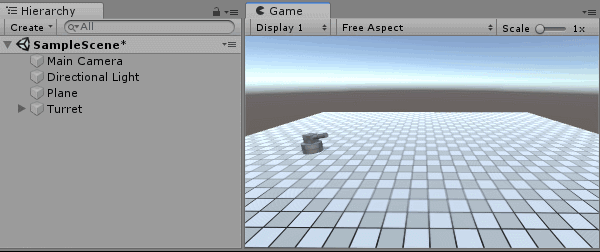
Example: Platformer 2D
Example: Platformer 2D Scene Graph
Example: Platformer 2D Events
// RocketComponent
void OnTriggerEnter2D (Collider2D col) {
// If it hits an enemy...
if(col.tag == "Enemy") {
// ... find the Enemy script and call the Hurt function.
col.gameObject.GetComponent<Enemy>().Hurt();
// Call the explosion instantiation.
OnExplode();
// Destroy the rocket.
Destroy (gameObject);
}
// Otherwise if it hits a bomb crate...
else if(col.tag == "BombPickup") {
// ... find the Bomb script and call the Explode function.
col.gameObject.GetComponent<Bomb>().Explode();
// Destroy the bomb crate.
Destroy (col.transform.root.gameObject);
// Destroy the rocket.
Destroy (gameObject);
}
}
Example: Platformer 2D delayed invocation
IEnumerator Spawn () {
// Create a random wait time before the prop is instantiated.
float waitTime = Random.Range(minTimeBetweenSpawns, maxTimeBetweenSpawns);
// Wait for the designated period.
yield return new WaitForSeconds(waitTime);
// Instantiate the prop at the desired position.
Rigidbody2D propInstance = Instantiate(backgroundProp, spawnPos, Quaternion.identity) as Rigidbody2D;
// Restart the coroutine to spawn another prop.
StartCoroutine(Spawn());
}
IEnumerator BombDetonation() {
// Play the fuse audioclip.
AudioSource.PlayClipAtPoint(fuse, transform.position);
// Wait for 2 seconds.
yield return new WaitForSeconds(fuseTime);
// Explode the bomb.
Explode();
}
Godot Engine
- Open-source 2D/3D engine
- Visual editor, persistent live editing
- Platforms: iOS, Android, Windows, macOS, Linux, HTML5, Web Assembly
- Demo projects: https://github.com/godotengine/godot-demo-projects
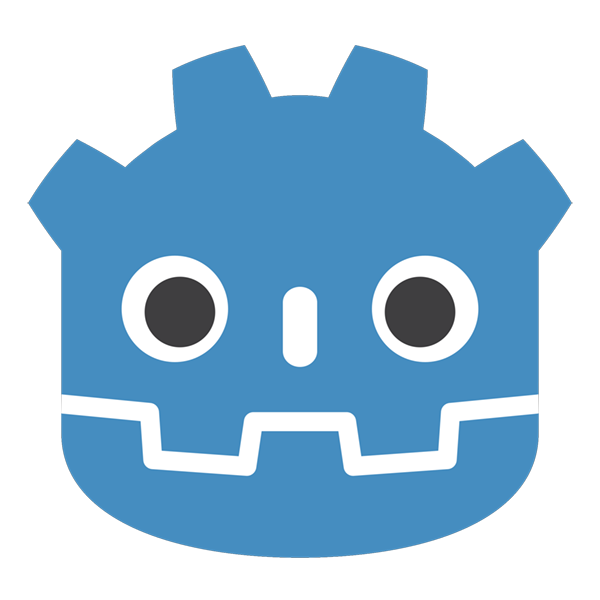
Godot Editor
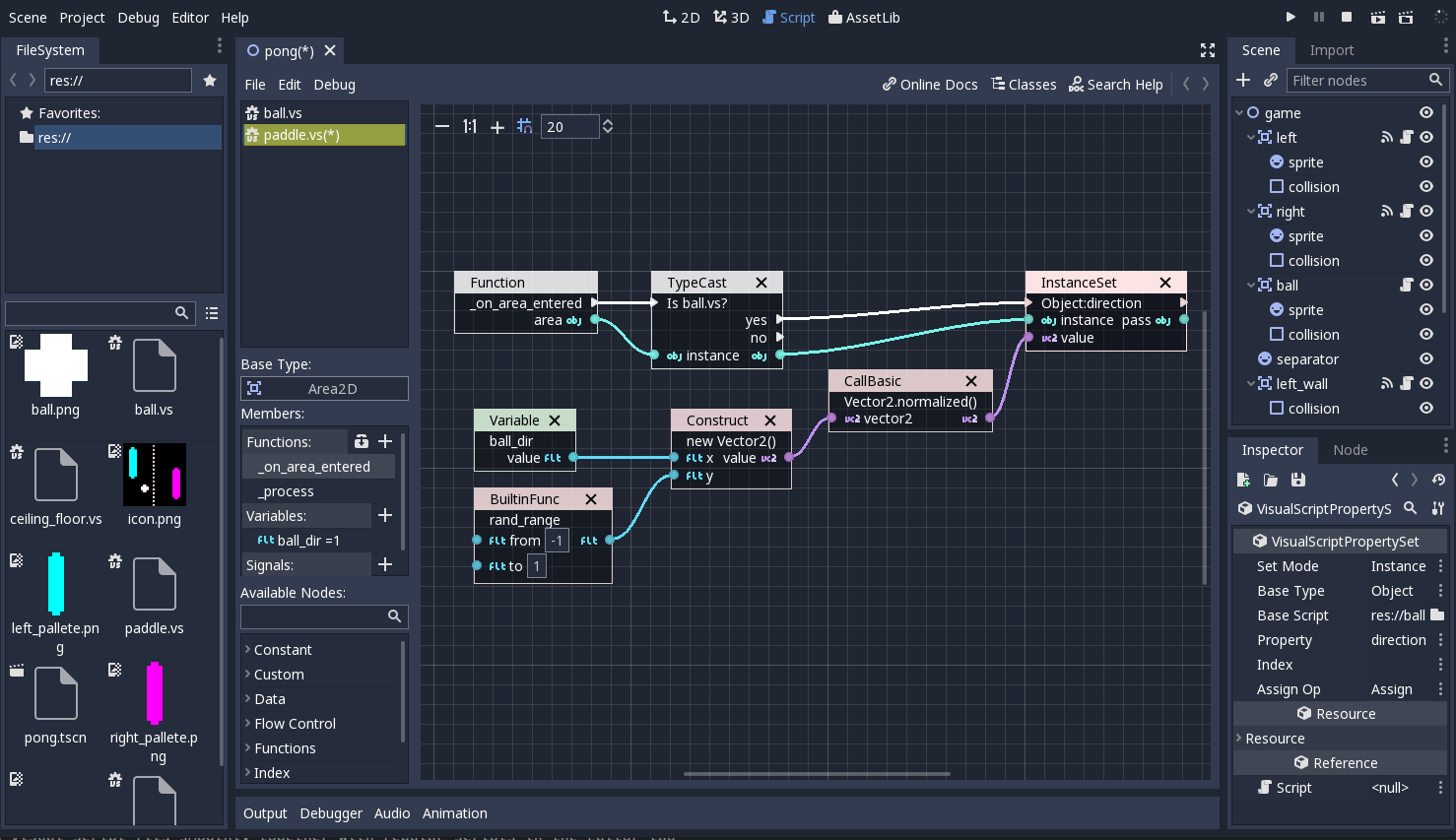
Example: GDScript
bullet.gd:
func _on_bullet_body_enter( body ):
if body.has_method("hit_by_bullet"):
body.call("hit_by_bullet")
enemy.gd:
func _physics_process(delta):
var new_anim = "idle"
if state==STATE_WALKING:
linear_velocity += GRAVITY_VEC * delta
linear_velocity.x = direction * WALK_SPEED
linear_velocity = move_and_slide(linear_velocity, FLOOR_NORMAL)
new_anim = "walk"
else:
new_anim = "explode"
func hit_by_bullet():
state = STATE_KILLED
Component-oriented frameworks

- ~Libraries and frameworks built on top of existing engines
Unity DOTS
- https://unity.com/dots
- multi-threaded Data-Oriented Technology Stack
- rests on the idea of ECS and Jobs
EnTT
- https://github.com/skypjack/entt
- header-only C++ library, pure ECS
- used in Minecraft (at least they say so...)
Entitas
- https://github.com/sschmid/Entitas-CSharp/
- Entity Component System Framework for C# and Unity
- ported to many other languages (Kotlin, Swift, C++, Java, Python,...)
A-Frame
- https://aframe.io/
- declarative component-oriented framework for virtual reality experience
- built on top of Three.js
ECSY framework
- https://blog.mozvr.com/introducing-ecsy/
- Brand-new ECS system developped by Mozilla
- Implemented for BabylonJS, ThreeJS, also PixiJS, Phaser and HTML Canvas
- Uses mutable/immutable entities and queries to collect them
- Work in progress, yet it looks very promising!
var world = new World();
world
.registerSystem(MoveSystem)
.registerSystem(RendererSystem);
class MoveSystem extends System {
execute(delta, time) {
this.queries.moving.results.forEach(entity => {
let pos = entity.getMutableComponent(Position);
pos.x += entity.getComponent(Velocity).x;
});
}
}
Event-Passing components
Event-passing components
- ~visual programming
- thinks solely in terms of sending streams of data from one object to another
- every component has a set of input ports to which a data stream can be connected, and one or more output ports
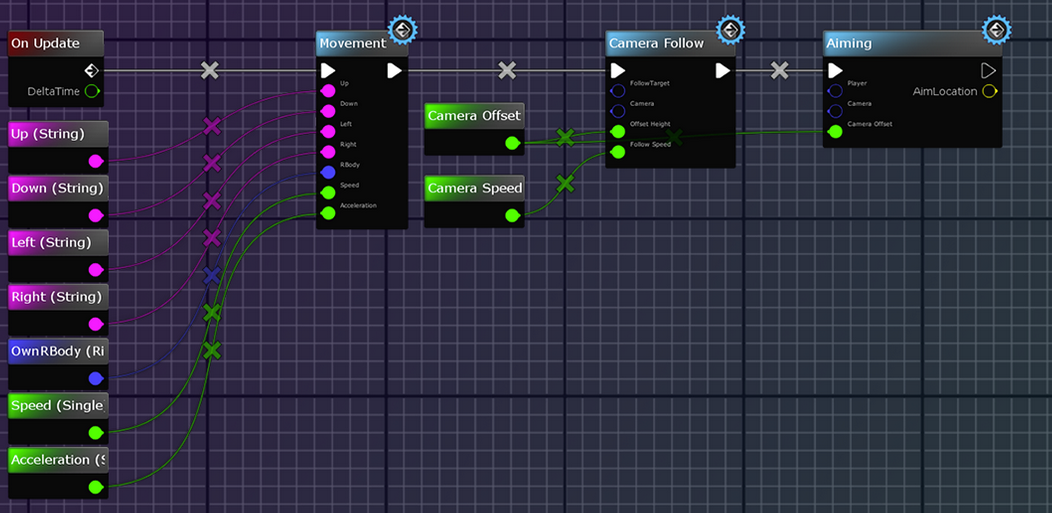
Nodus for Unity, deprecated

FlowCanvas for Unity
Event-passing components
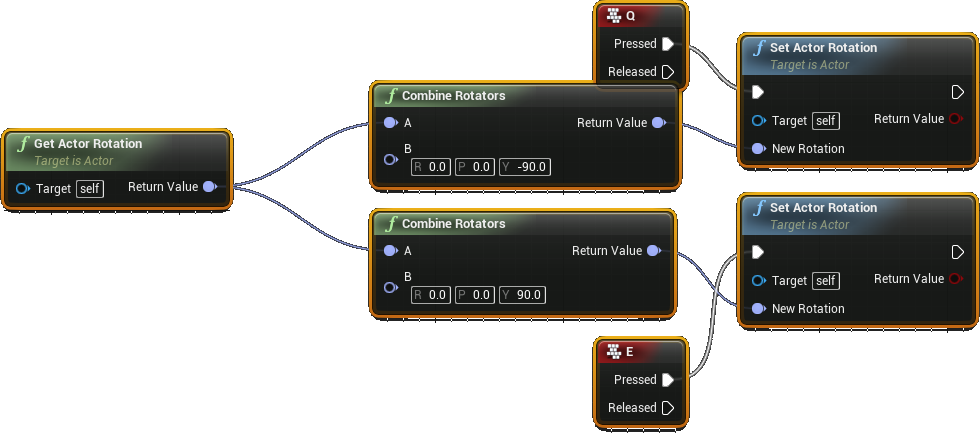
Unreal Blueprints
Event-passing components

Pure Data
Event-passing components
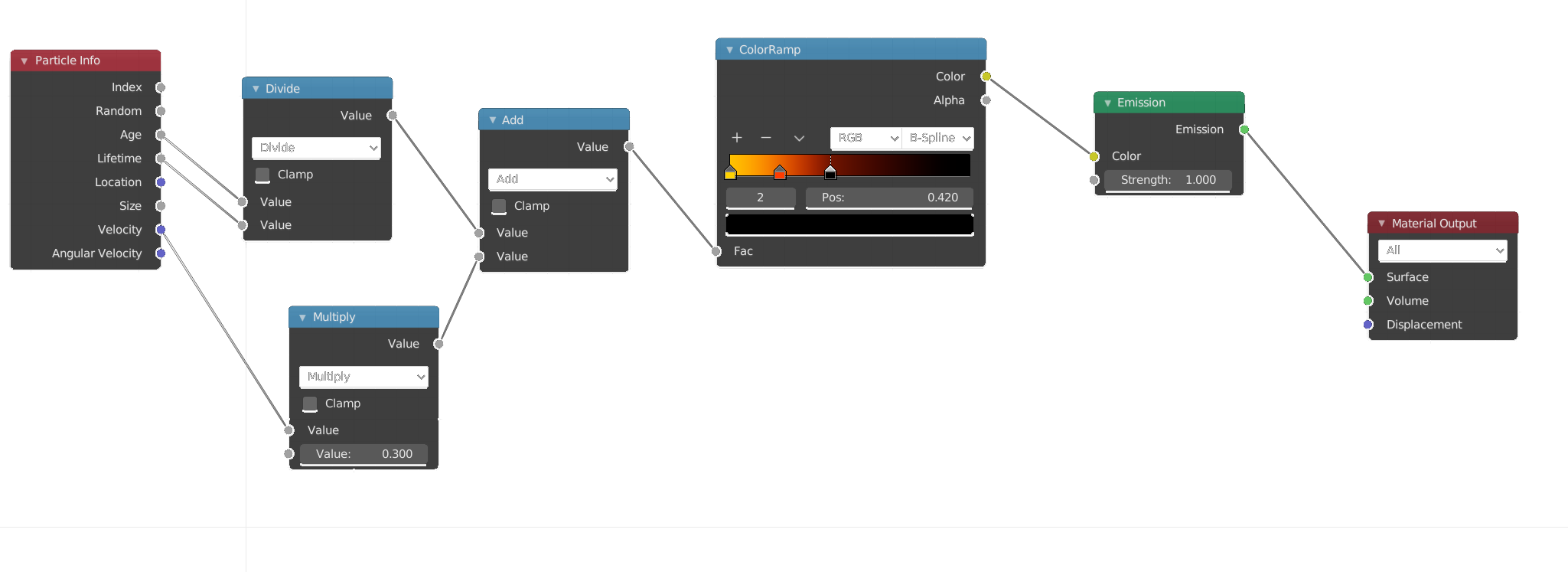
Blender 3D
Lecture 4 Review
- ECS(A) Pattern: the overall behavior of a particular game object is determined by the aggregation of its components and attributes
- Communication approaches : modifying state, direct call, messaging systems
- Message Types : unicast, multicast, broadcast
Goodbye quote
It's in the game!EA Sports
